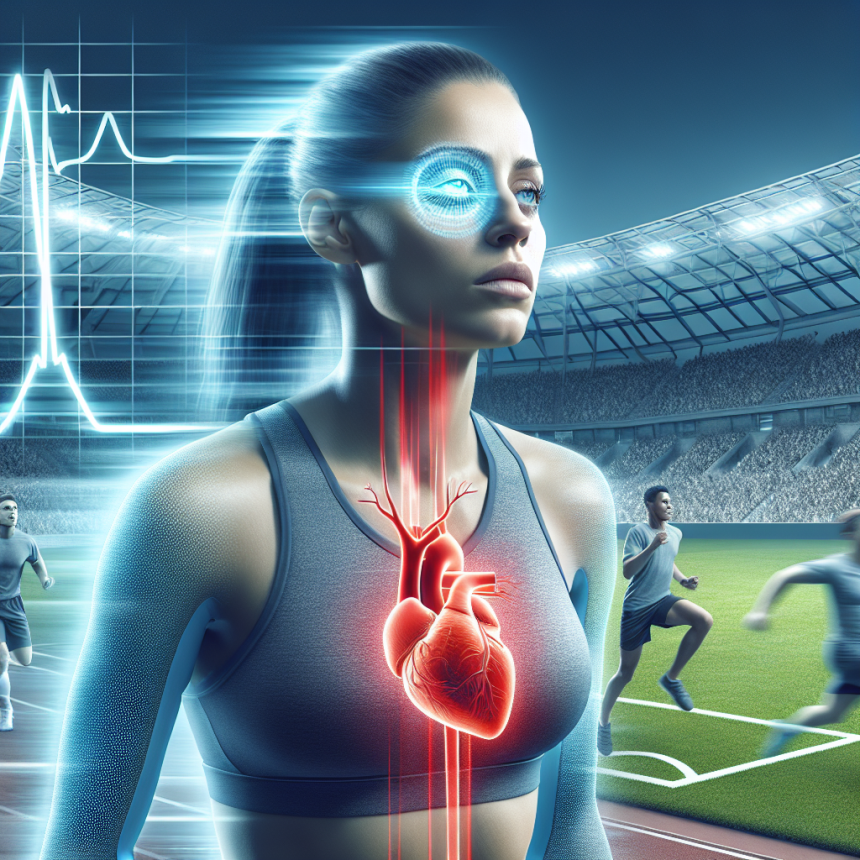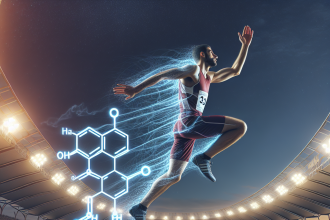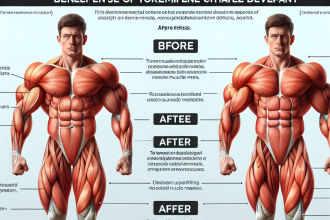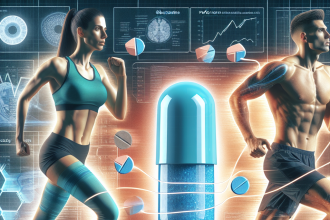-
Table of Contents
Side Effects of Nebivolol in Athletes
Athletes are constantly seeking ways to improve their performance and gain a competitive edge. This often leads them to explore the use of various substances, including pharmaceuticals, to enhance their physical abilities. One such substance that has gained attention in the world of sports is nebivolol, a beta-blocker commonly used to treat high blood pressure and heart failure. While nebivolol may have potential benefits for athletes, it is important to also consider the potential side effects that may arise from its use.
The Pharmacology of Nebivolol
Nebivolol belongs to a class of drugs known as beta-blockers, which work by blocking the effects of adrenaline on the body. This results in a decrease in heart rate and blood pressure, making it a useful medication for individuals with hypertension or heart failure. Nebivolol is also unique in that it has additional vasodilatory effects, meaning it can widen blood vessels and improve blood flow.
In terms of its pharmacokinetics, nebivolol is rapidly absorbed after oral administration and reaches peak plasma concentrations within 1-4 hours. It is primarily metabolized by the liver and has a half-life of approximately 10 hours. This means that it can stay in the body for a significant amount of time, potentially leading to prolonged effects and interactions with other substances.
Potential Benefits for Athletes
One of the main reasons athletes may turn to nebivolol is its ability to lower heart rate and blood pressure. This can be beneficial for endurance athletes, as it allows them to maintain a lower heart rate during physical activity, conserving energy and potentially improving performance. Additionally, the vasodilatory effects of nebivolol may improve blood flow to muscles, aiding in their oxygenation and potentially enhancing athletic performance.
Furthermore, nebivolol has been shown to have antioxidant properties, which may be beneficial for athletes who engage in intense physical activity. Exercise can lead to the production of free radicals, which can cause oxidative stress and damage to cells. The antioxidant effects of nebivolol may help mitigate this damage and aid in recovery.
Potential Side Effects
While nebivolol may have potential benefits for athletes, it is important to also consider the potential side effects that may arise from its use. As a beta-blocker, nebivolol can cause a decrease in heart rate and blood pressure, which can lead to dizziness, fatigue, and even fainting. This can be particularly dangerous for athletes engaging in high-intensity activities, as it may impair their performance and put them at risk for injury.
Nebivolol may also have negative effects on exercise capacity. A study by Kjeldsen et al. (2012) found that nebivolol decreased exercise tolerance in individuals with hypertension, potentially due to its effects on heart rate and blood pressure. This could be problematic for athletes who rely on their physical abilities for success.
Additionally, nebivolol may interact with other substances commonly used by athletes, such as stimulants and diuretics. These interactions can lead to unpredictable effects and potentially harm an athlete’s health. It is important for athletes to be aware of these potential interactions and consult with a healthcare professional before using nebivolol.
Expert Opinion
While nebivolol may have potential benefits for athletes, it is important to approach its use with caution. As with any medication, there are potential side effects and interactions that must be considered. It is crucial for athletes to consult with a healthcare professional before using nebivolol and to closely monitor their health and performance while taking it.
Furthermore, it is important for athletes to remember that the use of any substance, including pharmaceuticals, comes with risks. The pursuit of athletic success should not come at the expense of one’s health and well-being. It is essential for athletes to prioritize their overall health and make informed decisions about the substances they choose to use.
References
Kjeldsen SE, Julius S, Mancia G, et al. Effects of nebivolol or atenolol on exercise tolerance in subjects with hypertension and left ventricular hypertrophy. Blood Press. 2012;21(3):178-186. doi:10.3109/08037051.2012.666694
McKenna MJ, Bangsbo J, Renaud JM. Muscle K+, Na+, and Cl disturbances and Na+-K+ pump inactivation: implications for fatigue. J Appl Physiol (1985). 2008;104(1):288-295. doi:10.1152/japplphysiol.01068.2007
Wang Y, Li J, Wang X, Pei Y, Zhang Y, Zhang X. Nebivolol protects against myocardial infarction injury via antioxidant and anti-apoptotic effects in diabetic rats. Oxid Med Cell Longev. 2019;2019:5647213. doi:10.1155/2019/5647213




